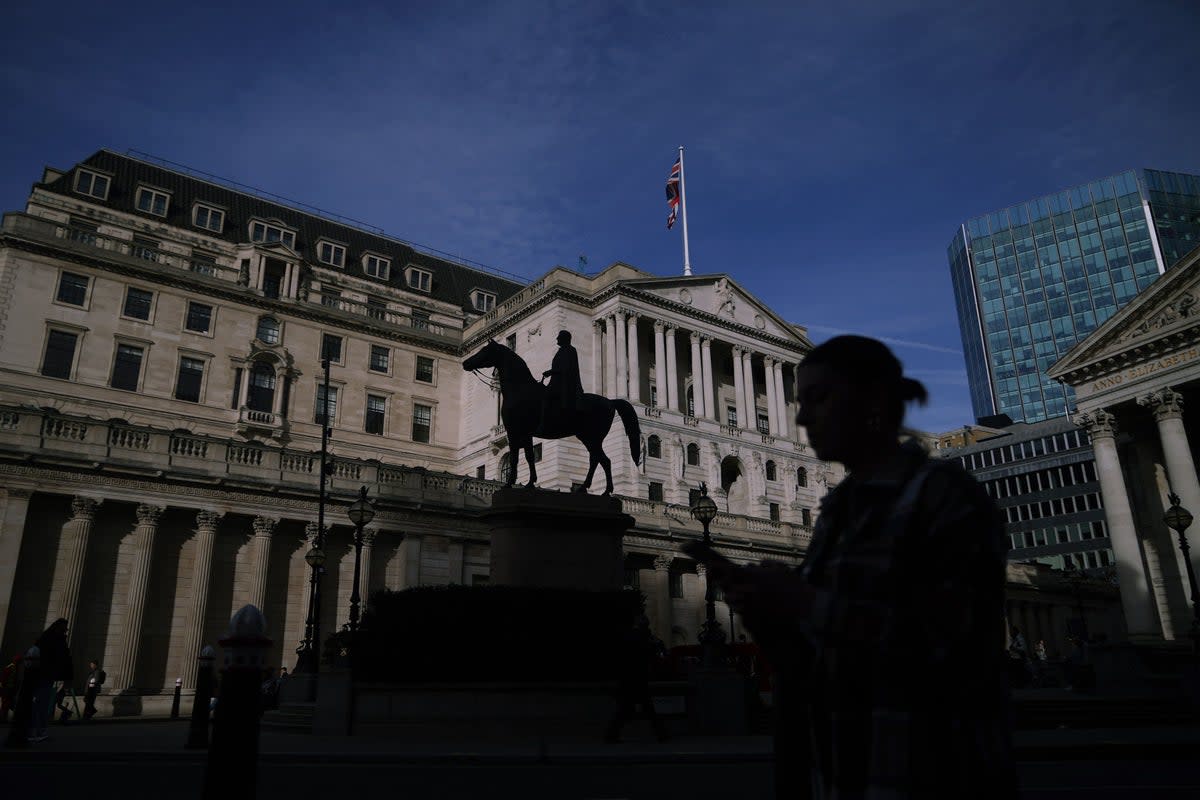Bank of England boss hints cuts are on the way as interest rate remains unchanged

The Bank of England has given its clearest sign in years that cuts could be on the way, after voting to keep interest rates unchanged.
Governor Andrew Bailey said the economy is “not yet at the point” where rates can be lowered, but said things are “moving in the right direction” after a sharp fall in inflation to 3.4 per cent in February, not far from the target of 2 per cent.
It came as the Monetary Policy Committee (MPC) kept the base rate unchanged at 5.25 per cent for the fifth consecutive time. For the first time since September 2021, no one on the nine-person committee voted for an increase.
Mr Bailey said: “In recent weeks we’ve seen further encouraging signs that inflation is coming down. We’ve held rates again today at 5.25 per cent because we need to be sure that inflation will fall back to our 2 per cent target and stay there. We’re not yet at the point where we can cut interest rates, but things are moving in the right direction.
“We do need to see further progress, but I do want to give this message very strongly we have had very encouraging and good news, so I think you know we can say – we are on the way.”
Jonathan Haskel and Catherine Mann had in February’s meeting argued that rates should rise to 5.5 per cent, but on Thursday they joined the majority to vote to hold at 5.25 per cent.
One member of the committee, Swati Dhingra, voted to cut rates to 5 per cent, repeating her vote from last month.
Governor Andrew Bailey explains today’s decision to hold interest rates at 5.25%. pic.twitter.com/64ls7oS1OU
— Bank of England (@bankofengland) March 21, 2024
Ruth Gregory, deputy chief UK economist at Capital Economics, said: “The Bank of England sprung no surprises, leaving interest rates at 5.25 per cent for the fifth time in a row and, despite no MPC members no longer voting to raise interest rates, it retained its relatively hawkish guidance.
“But it is the data not the guidance that counts. And our forecast that inflation will fall further and faster than the Bank expects suggests it will change its tune in the coming months.
“That’s why we think a rate cut in June is possible and why we think rates will fall to 3 per cent in 2025 rather than to 3.75-4 per cent as priced into the market.”
The BoE attracted criticism in some quarters for bumping interest rates too high and being “overly cautious” about cutting rates given the slowdown in inflation.
Carsten Jung, senior economist at the IPPR think tank, said: “Inflation is coming down more quickly than many predicted just a few months ago. This is largely due to global supply chains recovering and energy costs falling. But also domestic price pressures are falling quicker than the Bank had anticipated.
“All this shows the Bank of England tightened the screws too much, which is squeezing much-needed future growth. The Bank should thus cut rates more quickly than its current plans. The tightening stance by both the chancellor and the Bank of England contribute to the UK’s growth falling far behind the USA’s fast recovery.”
Suren Thiru, economics director at ICAEW, said: “While interest rates staying on hold again was expected, the more dovish vote split and meeting minutes suggest that rate-setters are opening the door for rate cuts later this year.
“Though this interest rate hiking cycle is firmly in the rear-view mirror, the long delay between tightening policy and its impact on the wider economy means that the heavy toll of 14 rate rises has yet to fully crystalise.
“The Bank of England remains overly cautious on the prospect of rate cuts given the startling inflation slowdown and an economy in recession, increasing the risk they prolong our economic struggles by keeping policy too tight for too long.”
The reaction from the property industry was mixed after homeowners previously suffered 14 consecutive interest rate increases in 2022 and the first half of 2023 from 0.1 per cent up to the current rate, prompting mortgages to rise sharply.
Foxtons CEO, Guy Gittins, said: “Homebuyers have been waiting patiently for an interest rate reduction and while it is largely expected to come this year, it seems as though they will have to wait a little longer still. The positive to take is that an air of stability has returned to the UK property market since rates were held at 5.25 per cent last September and this has helped revitalise buyer activity levels in recent months.”
Lomond CEO, Ed Phillips, commented: “Having previously endured 14 consecutive base rate hikes since December 2021, it’s been a case of no news is good news for the nation’s homebuyers of late when it comes to the Bank of England’s decision on interest rates.
“That said, they can be forgiven for feeling a little disappointed that we didn’t see a cut materialise today, particularly given this week’s inflation figures.”


